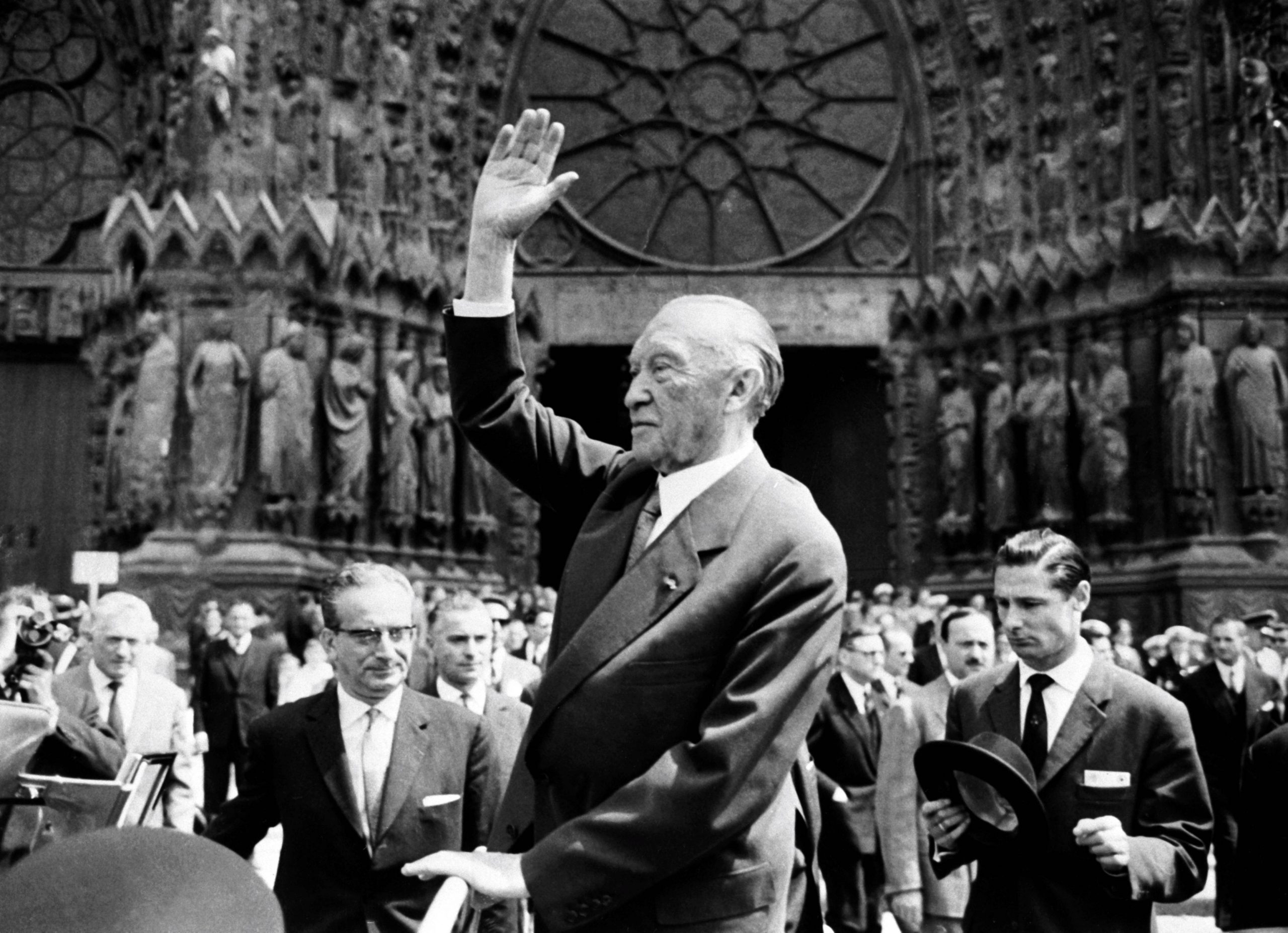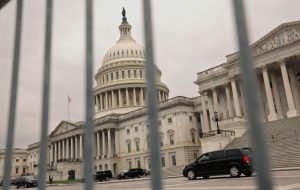Was Carlyle right about the profound impact individuals can have in the case of Hitler, Stalin, De Gaulle and Churchill? Are Churchill and De Gaulle a good fit for what Marx calls “leaders made by the moment”?
Carlyle looked no further than the character of his ‘great men’ in accounting for their impact. But without embedding their personalities in the structural conditions of their power, this can at best only be a partial explanation. Marx in contrast looks almost entirely at structures and sees personality as purely secondary. This, too, is inadequate in explaining the impact of rule. I try in this book to look for a synthesis. The structures provide the potential for an individual personality, once in power, to have a major, often devastating, impact on history.
In this “equation” formulated by Carlyle and Marx, would you say that “luck”, in the Thucydidean sense of the term, is also a factor in a leader’s impact on history? You yourself wrote that Lenin’s role in the 1917 revolution would have been different had Germany not assured him safe passage from Switzerland to Petrograd.
The example of Lenin shows that “luck” is generally not just pure chance or “fate”, but has explicable causes. Germany wanted to foster revolution in Russia in order to end the war in the east and free up troops to fight in the west. However, unpredictable events—the coronavirus pandemic, for example—can sometimes have a seismic impact on history.
You avoid the term “greatness”, or at least don’t make value judgments which differentiate between builders and destroyers. Does morality have a place in the reading of history?
The language that historians use betrays their own moral values. Nobody reading my books could think I’m neutral about Hitler or Stalin, for example. But moral terms such as ‘greatness’ or ‘evil’ have no analytical value. So in my view it is best to avoid them when trying to explain historical change.
If we had to choose one example to prove the impact of individuals on history, it would have to be “No Hitler, no Holocaust”. But what lies beneath in terms of the infrastructures and mechanisms required? Was Hitler working absolutely alone?
Complex structures and events were necessary to take Hitler to a position of absolute power in Germany. Even after attaining absolute power by the summer of 1934, Hitler was dependent on a panoply of agencies to implement his power. The build-up of the Wehrmacht, for instance, was essential to Germany’s growing power and preparation for war. So was economic strength. The exterminatory program of the Holocaust followed years in which every agency in the regime had come to focus its energies on the ‘removal’ of the Jews. Of these, the SS was the most important. Hitler was central to these developments. But the various substructures of rule made his exercise of absolute power possible.
It can be said, I think, that with few exceptions, one would not like to spend a holiday with powerful leaders such as these. How is it that people or nations can find repulsive characteristics so very attractive at particular times?
Major, systemic crisis brings forward individuals who otherwise would probably not have attained power, and in different conditions would have repelled society rather than attracted a following. During the deep crisis in Italy following the First World War, for instance, Mussolini appealed to millions of Italians by claiming that he would eliminate weak and discredited government in the hands of elites, ruthlessly destroy internal enemies—seen mainly as a threat from socialism and communism—and restore Italy’s status as a great power. The rise of Hitler, someone unheard of before the end of the First World War, can be seen in similar terms, though German democracy survived the immediate postwar crisis and it took the comprehensive crisis of the Great Depression of the early 1930s to provide the circumstances in which he could take power.
Nevertheless, if you had the chance to participate in a relaxed meeting over dinner and drinks, which of the builders would you choose to dine with (in terms of pure curiosity)?
Mikhail Gorbachev would have been fascinating to meet over dinner, though he would have talked all the time. Winston Churchill in his prime would have been entertaining, amusing and wide-ranging in his interests—though entirely egocentric and domineering in discussion.
Do all autocrats and dictators consider themselves were men of destiny? And were they all narcissistic?
They were certainly all driven individuals, single-minded and ruthless in their pursuit of power. And they were all narcissistic–a character trait hugely enhanced by their train of fawning acolytes and, once they attained power, by the absurdities of their image, manufactured by a monopoly propaganda machine. The sense that they were ‘men of destiny’ was not confined to dictators in the first half of the 20th century. Churchill and de Gaulle both saw themselves this way, though de Gaulle was one of the last leaders to see himself as driven by destiny. Leaders in the second half of the 20th century seldom did so.
From what we know about Putin, Erdoğan, Xi Jinping and Modi, can it be said that the history of the 21st century , for good or ill, is being written by individuals? Specifically, is Putin changing history as we speak?
Such individuals play an enormous part, of course, in shaping our world. But it is too simplistic to see 21st century history as purely ‘written by individuals’. Vital developments that influence our world—climate change, population growth, mass migration, technological advances, to mention a few—are beyond the control of individuals, however powerful. Putin’s war in Ukraine is, to be sure, having a massive impact. But, as we have seen, Putin himself is far from in complete control of the demons he has unleashed.
Are you restrained in general when you hear about “charismatic authority or leadership”? What would you expect from a prudent leader?
I have an ingrained aversion to leaders who are seen to be ‘charismatic’, since I have seen how easily ‘charismatic’ leadership can produce disaster when it is unconstrained. I would expect a prudent leader to be competent, able to work collectively to maximize experience and rationality in decision-making, and effective in improving the lives of citizens.
In which of the twelve leaders were the ethics of responsibility combined with the ethics of conviction? Are there any modern leaders that have or had that combination?
In general, as is to be expected, the democratic leaders in the book (and others far beyond) tended to subordinate their convictions, however strong, to the ethics of responsibility. The dictators, by contrast, were driven by conviction and were largely devoid of the ethics of responsibility (or any ethical constraints).
How would you judge Angela Merkel within the scopes of your analysis of power and personality?
She fits for the most part the criteria mentioned above for a prudent leader. But, as we have seen, the heavy German dependence on Russian gas supplies, which she did not initiate but did nothing to reduce, was a major error, as was her general (widely shared) ambition to accommodate Russia through improved trading relations (Wandel durch Handel). So her standing, sky-high when she left office, has recently slumped drastically.
Are you confident that our democracies will withstand the challenges they are currently facing with nationalist populism on the rise in Italy, Hungary, Poland, Brazil and elsewhere?
Democracy is fighting an uphill battle in many parts of the world, and even within Europe. It is hard to be optimistic just at present. But the economic situation is likely to improve. That will offer democratic politicians better chances to improve the position of their citizens. The emptiness of the populists’ simplistic promises can be exposed. And people ultimately like their freedoms. So I’m moderately confident, though by no means complacent.
It seems that Konrad Adenauer was one of the most intriguing and prudent figures in European history. As you write: “His approach to the Hitler years was perfectly attuned to a society more anxious to look to future peace, prosperity and stability than to rake out the crimes of the very recent past.” Does this example provide a yardstick for constructive leadership? Is there an equivalent leader in more recent history?
Adenauer is an excellent example of constructive leadership. There are many others, both in and outside Europe. Despite the unmistakable impression of frailty and the failings of old age, Joe Biden has shown great constructive leadership in the internal affairs of America, especially in his Inflation Reduction Act and infrastructural stimulus.
“A single death is tragedy. A million deaths is statistics.” How did these 12 leaders regard the millions of individuals whose lives were affected by the decisions they took? We can work things out as far as Hitler and Stalin are concerned, but what about Gorbachev, for example? Did he know that millions of people were looking ahead to his great gesture?
In his early years in power, especially, Gorbachev was keen to listen to the views of ordinary people. He understood many of their problems. And he was aware that his major policies were broadly popular, at least at first. Of course, that changed—though only in 1989-90, when these led to great economic hardship.



